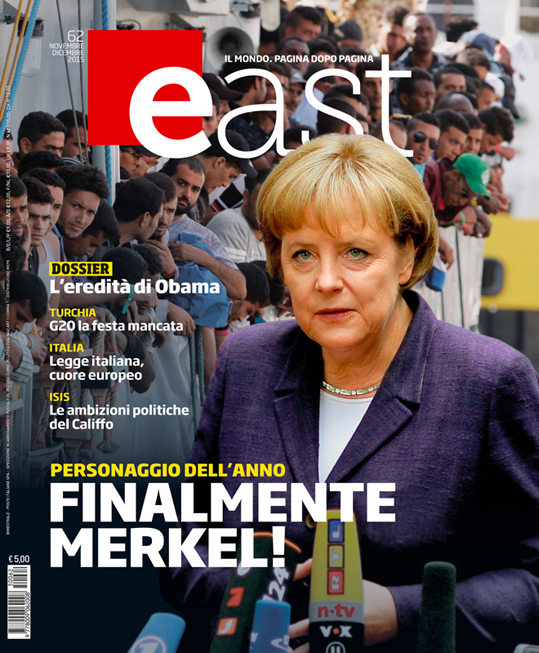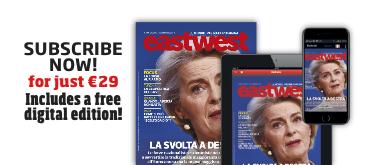The survey we carried out among our readership to identify which personality in the realm of politics or economics had most influenced international events in 2015 singled out Angela Merkel (over 40% of votes), followed by the ‘Syrian refugee’ (32%) and Pope Francis, Islamic State (IS) leader Abu Bakr al-Baghdadi and European Central Bank President Mario Draghi with 8% each. We have therefore dedicated our cover to the German chancellor, against the backdrop of the drama of the Syrian citizens fleeing from their war-torn country.
This choice was not entirely based on the outcome of the survey but took into account Merkel’s decision to open her arms to the refugees, effectively turning the tables on a previous European approach that increasingly smacked of racism and was prevailingly backed by populist and irresponsible leaders, something we had pointed out in the previous issue. So the results of the poll are easily explained, seeing as it was conducted just as the chancellor was opening her borders, surprising everyone, even those in our newsroom, who for some time had been calling on her to make her mark as a true European leader.
Finally, the ‘woman from the East’ has thrown her usual caution to the wind and her tendency to court the baser instincts of the average German voter, catching many of them off-guard yet sparking the admiration of Europe as a whole (something we had always been hoping for) and of a large section of her electorate, probably the smarter ones among them.
Current affairs experts would probably have cast their ‘Person of the Year’ vote in favour of the resplendent Obama of late, who at the end of his term is reaping one success after another, from peace with Iran to renewed relations with Cuba, and he’s not done yet. But Merkel has had such an impact because she has used the most dramatic and symbolic of crises as leverage to do away with national borders, immediately securing a vast following and leading Europe to reach a majority decision over refugee allocation in defiance of the dictates of the Treaties (which call for a unanimous vote on the issue), as further proof that a federal Europe can happen at any moment if three leaders are in agreement.
We only hope that the Volkswagen scandal does not undermine the chancellor’s newly found continental status and might instead help quell the nationalistic vanity of the more reactionary Christian Democrat cohorts, getting them too to realise, once and for all, that either we all pull through together or none of us do!
This choice was not entirely based on the outcome of the survey but took into account Merkel’s decision to open her arms to the refugees, effectively turning the tables on a previous European approach that increasingly smacked of racism and was prevailingly backed by populist and irresponsible leaders, something we had pointed out in the previous issue. So the results of the poll are easily explained, seeing as it was conducted just as the chancellor was opening her borders, surprising everyone, even those in our newsroom, who for some time had been calling on her to make her mark as a true European leader.
Finally, the ‘woman from the East’ has thrown her usual caution to the wind and her tendency to court the baser instincts of the average German voter, catching many of them off-guard yet sparking the admiration of Europe as a whole (something we had always been hoping for) and of a large section of her electorate, probably the smarter ones among them.





